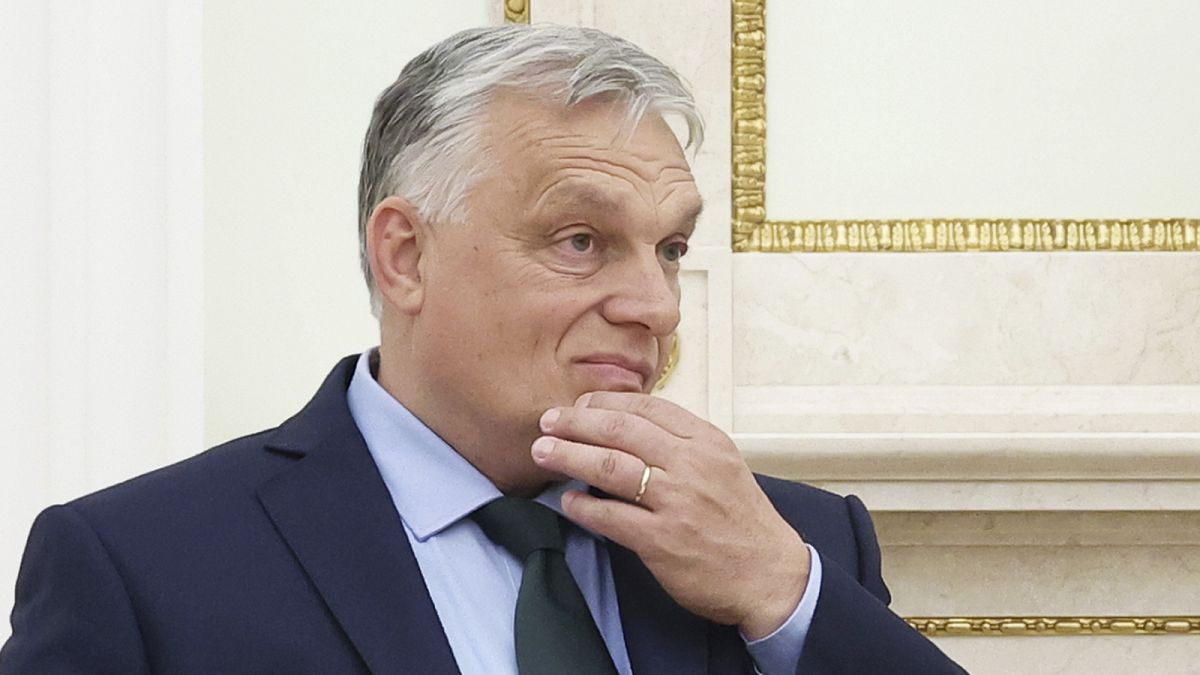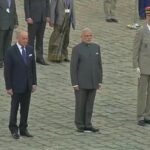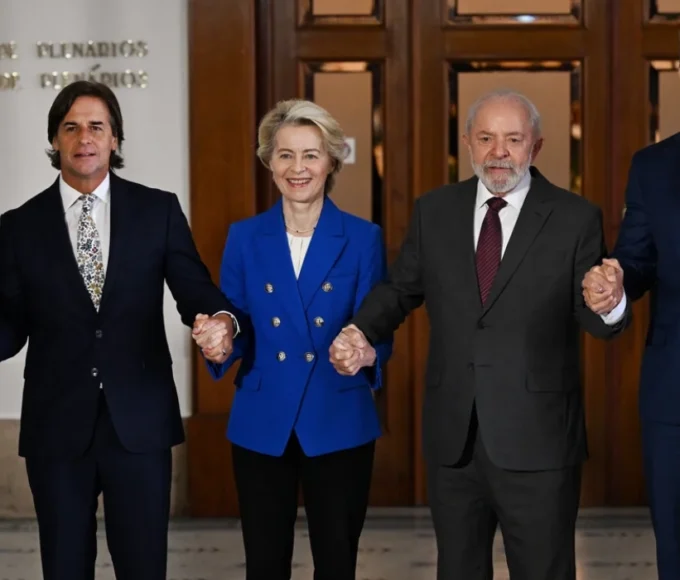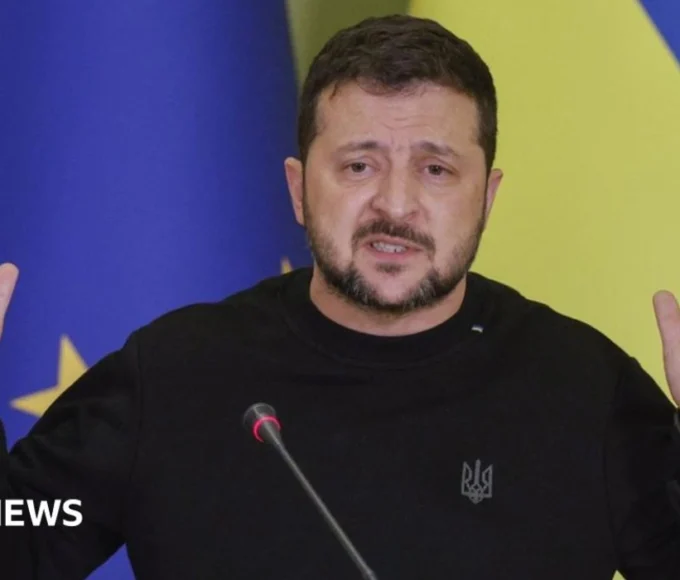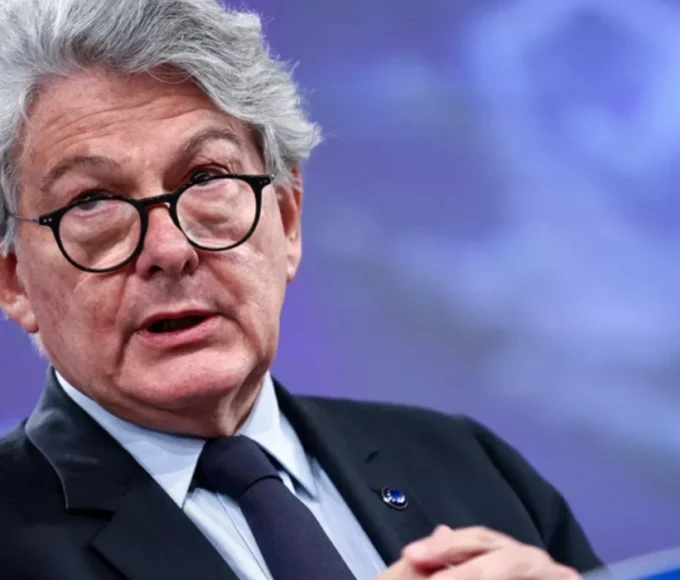Hungary’s foreign minister has accused European governments of targeting Budapest with a “campaign of lies” over the entry system.
Hungary’s deadline to explain its easing of entry requirements for Russian and Belarusian nationals is due to expire on Monday, as frustration with Viktor Orbán’s rebellious foreign policy mounts in EU capitals.
In a letter to her Hungarian counterpart earlier this month, EU foreign policy chief Ylva Johansson asked the Budapest government to explain recent changes to the national card immigration system, making it easier for Russians and Belarusians to enter the country to work.
The scheme, which grants a two-year stay renewable for three years to “guest workers,” could pave the way for permanent residency. Hungary has extended the scheme, initially open to Serbian and Ukrainian nationals, to EU candidate countries Bosnia and Herzegovina, Montenegro, North Macedonia and Moldova, as well as Belarus and Russia.
Brussels says the changes could allow “potential Russian spies and saboteurs easy access to the EU”, jeopardising the security of the passport-free Schengen area.
“If their easy access plan poses a risk, we will act,” Johansson warns in his letter.
A Commission source confirmed to the Europe Observatory on Monday that the executive was ready to assess the “compliance of this plan and its potential impact on Hungary’s obligations under EU law” once it had received a response from the Hungarian government.
Eight Nordic and Baltic countries – Denmark, Estonia, Finland, Iceland, Latvia, Lithuania, Norway and Sweden – weighed in on the issue in a letter to Johansson dated 15 August, expressing deep concern about the plan.
“We are concerned that this decision poses a serious security risk to all member states,” the two countries’ foreign, interior and justice ministers said. “Hungary’s response, your analysis and the next steps will be of the utmost importance to ensure our national security.”
All eight countries are in Europe’s Schengen free-travel area.
Hungarian Foreign Minister Péter Szijjártó hit back at the weekend, accusing his Baltic and Nordic counterparts of peddling lies.
“The inclusion of Russian and Belarusian citizens in the national card program does not pose any security risk from the perspective of the Schengen area, since these people still have to undergo full screening to enter and stay in Hungary,” Szijjártó said on Facebook.
“All claims to the contrary by colleagues from Northern Europe and the Baltic countries, blinded by their adherence to the pro-war camp, are pure lies,” the foreign minister added.
The EU suspended its visa facilitation agreement with Russia in response to its invasion of Ukraine in 2022, making access to the bloc more expensive and more burdensome for Russian and Belarusian citizens.
The EU has also closed its airspace to flights operated by Russia and severely restricted land travel across the bloc’s border with Russia.
The EU executive fears that such measures and their impact could now be undermined, with Hungary providing a backdoor for Russians and Belarusians to enter the Schengen area, which removes border controls between 29 European countries to facilitate the smooth transit of people.
While each EU country is free to design its own visa policy, the Commission could step in if it believes a country’s decisions violate the common minimum rules imposed by Brussels.
“Any plan to attract foreign workers must be carefully balanced so as not to jeopardise the integrity of our common area without internal border controls and to take due account of potential security implications,” Johansson wrote.
Brussels-Budapest relations at all-time low
The latest fallout is heightening tensions between Brussels and Budapest.
Relations, long strained, hit a historic low in July when Prime Minister Orbán met Russian President Vladimir Putin in Moscow on a self-proclaimed peace mission that EU leaders called a provocation.
Orbán’s trip to Moscow coincided with the start of Hungary’s six-month rotating presidency of the EU Council, sparking a backlash against what was seen as an attempt to hijack EU foreign policy.
Several EU ministers have expressed exasperation with Orbán, who has consistently derailed crucial EU decisions on support for Ukraine, and continues to block the release of €6.6 billion in aid under the European Peace Facility (EPD), preventing member states from being partially reimbursed for supplies they send to kyiv.
This article is originally published on observatoiredeleurope.com


